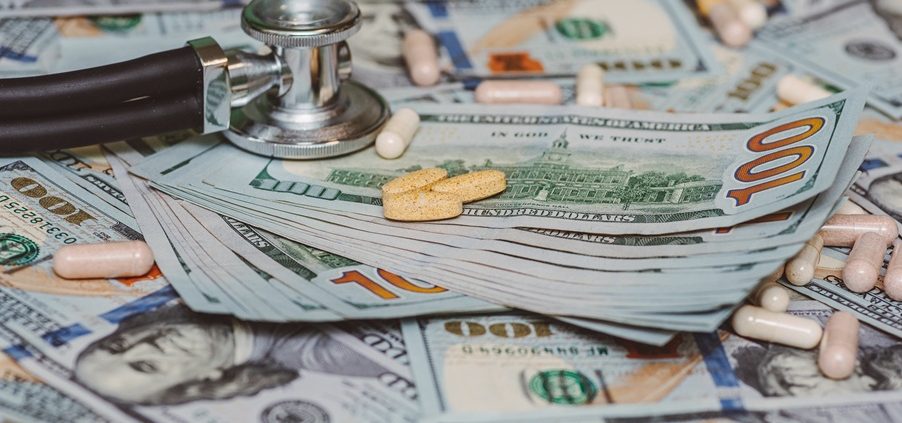The Rising Importance of Healthcare Financing for Uninsured Americans

Millions of Americans still face daily uncertainty due to a lack of health insurance. Rising medical costs, unexpected emergencies, and limited employer-sponsored coverage leave many struggling to afford even basic care. This issue cuts across income levels and demographics, making out-of-pocket health expenses a widespread and growing concern.
To bridge this gap, healthcare financing has emerged as a vital solution. It encompasses a range of options—payment plans, medical credit lines, and other flexible arrangements—that help individuals manage medical expenses without jeopardizing their financial stability. These tools provide a path to essential care for those who might otherwise go without. In this article, we’ll explore five key reasons why healthcare financing plays a critical role for uninsured Americans today, and how it’s helping reshape access to care in an increasingly expensive system.
1. Improve Access to Care
Uninsured people often avoid treatment because they worry about the price of basic services. A simple visit alone can already cost $150 to $400 for new patients, depending on the issue. Healthcare financing breaks these expenses into manageable payments, rather than requiring the full amount upfront. As a result, more patients can schedule care without fearing they won’t be able to pay.
Financing programs also make specialty services more accessible for individuals who usually postpone treatment. When people know they can pay over time, they’re more likely to prioritize health instead of putting off appointments. This approach creates healthier communities and builds trust between patients and providers.
2. Encourage Preventive Treatment
Regular checkups and early interventions can prevent minor problems from growing into serious conditions. Healthcare financing encourages patients to seek preventive care by reducing the immediate cost barrier. Instead of ignoring symptoms or skipping screenings, people feel empowered to act sooner. This focus on early treatment can lower overall expenses and improve long-term wellness.
Providers who offer financing often see higher participation in wellness programs and follow-up visits. Patients are more likely to complete treatment plans when payments stay manageable. This confidence encourages them to keep appointments and follow medical advice. Preventive care also reduces the strain on community health systems by lowering the need for expensive emergency treatments.
3. Offer Predictable Payment Options
For many uninsured Americans, planning for healthcare costs is a constant challenge. Financing options can ease that burden by offering predictable payment schedules, making it easier to budget for essential care. Knowing exactly how much will be due each month helps individuals allocate money without constant fear of hidden charges or shifting fees. This structure supports better money management and builds financial discipline over time.
For people with limited credit or no bank access, alternative financing like online installment loans can help cover medical bills. These loans provide fixed monthly payments that feel more manageable than lump sums. Choosing this option can reduce and even prevent a lot of the unpaid medical bills consequences that many often experience. These consequences include damaged credit scores, frequent collection calls, and ongoing stress about unpaid balances.
4. Reduce Financial Stress
A study by Undue Medical Debt found that 60% of individuals with medical debt report negative impacts on their mental well‑being. Healthcare financing alleviates this tension by providing patients with predictable ways to manage debt. Instead of dealing with large surprise bills, people can budget monthly payments with confidence and focus on recovery rather than constant worry over costs.
Additionally, stress over medical debt often spills into other parts of life. People sometimes skip rent or utilities to pay a bill. Financing options reduce this burden and help maintain daily living expenses. When uninsured patients feel secure about their payment plans, they can better handle emergencies and unexpected health events. The result is a stronger sense of control over personal finances.
5. Protect Personal Savings
A sudden illness or injury can wipe out years of savings in a matter of weeks. Healthcare financing helps protect personal assets by spreading medical costs over time, reducing the need to dip into emergency savings or liquidate valuables to cover unexpected expenses.. Patients can continue saving for education, retirement, and other goals while managing medical debt responsibly.
Financing also reduces the need to rely on high-interest credit cards that create further financial strain. When patients use structured payment plans, they avoid the cycle of debt that traps many uninsured Americans. Protecting personal savings becomes possible when healthcare expenses don’t force people to exhaust all their resources at once. This stability supports long-term financial health and security.
Government vs Private Healthcare Financing: Do We Need Both?
Public programs provide essential help for many uninsured Americans by covering basic care and offering income-based subsidies. These resources can reduce out-of-pocket costs and create more stable access to doctors and hospitals. Still, public assistance often has limits, and not everyone qualifies for the support they need when unexpected medical bills arrive.
Private healthcare financing helps fill these gaps by giving patients flexible payment plans and personal credit options. This approach makes it easier to manage larger expenses without draining savings or falling behind on other obligations. Combining government assistance with private solutions can build a stronger safety net that keeps healthcare affordable and protects long-term financial security.





Leave a Reply
Want to join the discussion?Feel free to contribute!